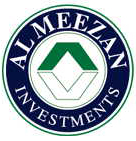| |
DUBAI — GCC-based Islamic banks and investment companies are preparing for a hot race to gain market share in Islamic banking and shariah-based financial services business in Malaysia, according to bankers and market analysts.
Saudi Arabia's Al Rajhi Bank, the world's largest Islamic banking group, yesterday unveiled an aggressive plan to expand its operations in Malaysia to 50 branches by 2010. Al Rajhi has set up 12 branches since it opened for business in Malaysia with a soft launch in October last year. The bank was formally inaugurated yesterday.
Malaysia awarded licences to three foreign Islamic banks in 2004 in an effort to become a regional Islamic financial hub. The two other foreign Islamic banks in the country are Kuwait Finance House (KFH) and the Asian Finance Bank. In addition, there are nine Malaysian Islamic banks currently operating.
KFH, the first Gulf-based bank to gain Islamic banking licence in Malaysia, is in the process of fast-tracking its expansion in Malaysia and South East Asia through the acquisition of Malaysia's Utama Banking Group Bhd's (UBG) stake in RHB Capital Bhd. Debt-ridden RHB is the parent of RHB Capital Bhd, Malaysia's fourth largest lender. According to banking industry sources, KFH, acting in concert with a group of investors from the Middle East, plans to turn the RHB group into a giant Islamic financial service entity. According to the plan, under the new management, RHB Capital, which owns the unlisted RHB Bank, will shed its non-converted Islamic assets, and the proceeds will be used to expand the RHB group's Islamic credentials.
According to investment banking sources, if successful in its bid for RHB, KFH is planning to inject as much as $2.28 billion. The expanded cash base will be used specifically to acquire Islamic banks and convert conventional banks to Islamic banks in other countries such as Singapore, Thailand and Indonesia.
Qatar Investment Authority, the state-owned investment arm of Qatar has joined the race for a slice of Islamic banking fortune in Malaysia last week indirectly through a consortium managed by Primus Pacific Partners, which is negotiating to buy a stake in RHB.
The other major consortium member is Taiwan's Fubon Financial group. Both QIA and Fubon are also shareholders of Primus, a Hong Kong-based private equity fund focused on financial services. QIA and its consortium partners, in bidding for a stake in RHB, would be competing with Kuwait Finance House's bid to purchase RHB Capital Bhd and the Employees Provident Fund's (EPF) plan of an offer for sale of RHB Capital shares to RHB shareholders.
According to analysts the advent of Islamic banking, the dawn of the world's largest domestic Islamic capital market, the growth of Islamic assets and its staggering future prospects are attracting Gulf's Islamic institutions and petrodollars to Malaysia.
Even by conservative estimates the global Islamic financial sector is set to grow 18 per cent per annum. In reality, the total amount of deposits in selected Islamic institutions, the balance sheets, the assets under management and the stash of private wealth are growing at about 25 per cent to 40 per cent annually. With oil prices and liquidity projected at about the same levels for most of 2007, the budget surpluses of GCC countries will continue to be high. This will further drive both the public and private sector involvement in Islamic markets.
Al Rajhi Bank that has a market capitalisation of $29 billion has clarified that they have no plans to take acquisition route to expand their market share in Malaysia. “We look at Malaysia as a platform to do more business in this region. But we are not going to open branches in other countries. We believe growth in the region is there and Malaysia is in a good position because it is a leader in Islamic banking, said Abdullah Sulaiman Al Rajhi, Chairman of Al Rajhi Bank in a statement yesterday.
The Malaysian venture is the bank's first outside Saudi Arabia, where it operates more than 400 branches. The bank is focused on the retail segment but plans to roll out corporate and investment banking products soon
|








